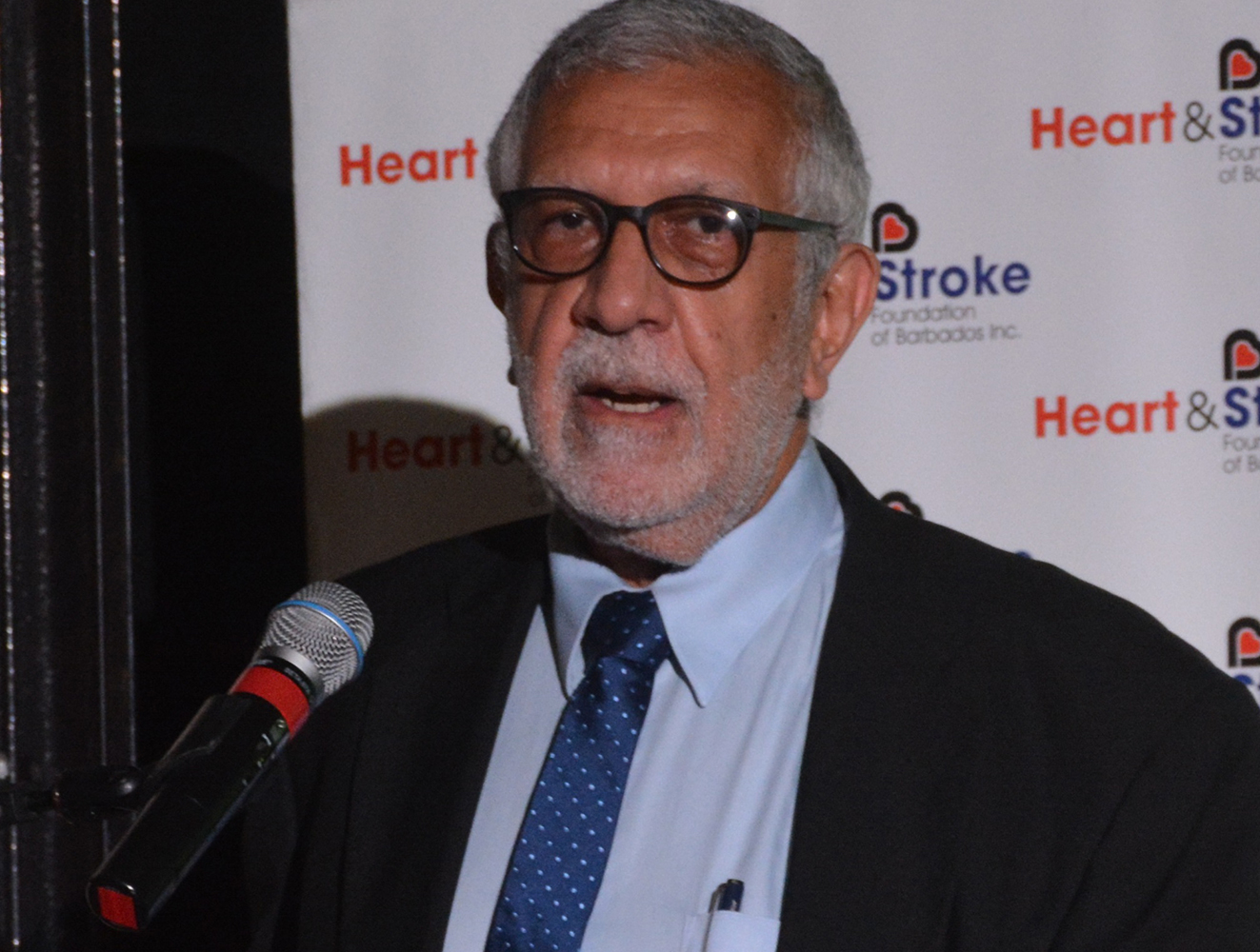by George Alleyne
Heart attacks in Barbados are growing, so correspondingly are the resulting deaths and the emergence of the COVID-19 pandemic further complicates matters, holding out another and stronger possibility of mortality in those with an already malfunctioning organ.
“There has been an increase in numbers of new cases registered from a three-year average of approximately 350 in 2010, 2011 and 2012 to a three-year average of 460 in 2016, 2017 and 2018,” reads a document produced
by the George Alleyne Chronic Disease Research Centre.
It continues, “this implies a 33 per cent increase in the number of new heart attacks on the island”.
Using the same three-year average, the Centre found, “deaths in hospital increased by nine per cent and deaths in the community increased by 20 per cent between 2010-12 and 2016-18. The numbers of people with heart attacks dying in hospital remain high: 21 per cent in 2017 and 25 per cent in 2018 and are more than twice that of other high-income countries”.
World Health Organisation data indicate, “that’s about one in every seven deaths in Barbados. About one person dies of coronary heart disease each day, an average of one death every 25 hours”.
“I’ve been reliably informed though that our death rate is significantly higher today than in 2017,” said Dr Abdon Dasilva on Tuesday night.
The family physician and immediate past president of the Barbados Association of Medical Practitioners made the comment while delivering a World Heart Day and the Heart and Stroke Foundation of Barbados 35th anniversary lecture.
Dr Dasilva accompanied his presentation in the Barbados Museum and Historical Society’s Walled Garden with slides containing the data reported above, which he described as ‘sobering figures’.
The former chairman of the Barbados Medical Council and contributing member of the National Commission on Non-communicable Diseases explained that the worries Covid-19 brings is that if it does not kill a person with a weak cardiovascular system, it can leave the network of a healthy person terribly scarred.
“The presence of underlying cardiovascular [diseases] in patients with COVID-19 is associated with high mortality and COVID-19 can cause cardiovascular disorders, including primary injury to the heart muscles, irregular heart rates, acute blockage of the blood supply to the heart muscle or the acute coronary syndrome and blot clots in the veins; as well as the potential for an increasing number of strokes as the pandemic progresses.”
A peculiarity that the George Alleyne Centre found was the gender disparity in the 33 per cent increase in heart attacks in Barbados.
“In 2017 and 2018, there were more heart attacks in men than women at every age except those over 85 years old.”
Over the years Barbados has been adjusting upwards its treatment facilities and drug applications to cardiovascular patients.
“Prior to the establishment of a medical Intensive Care Unit at the Queen Elizabeth Hospital in 1972 patients with heart attacks were managed in the general wards with no facility for monitoring.
Today we have a state-of-the-art unit,” Dr DaSilva noted, while observing an area of continued deficiency.
“It’s probably safe to say that we still struggle with shortage of nursing staff.”
He said, “prior to the advent of cardiovascular surgery [in Barbados] patients requiring bypass surgery for coronary … disease as well as children with congenital heart lesions requiring surgery were treated abroad, most of which I believe took place in New York at tremendous cost”.
“Today we have the benefit of the expertise of an intervention cardiologist with stenting of the coronary vessels being done and less requirement for bypass surgery.”
While introduction of new techniques and applications in treatment may be reaping positive results the larger issue of Barbadian lifestyles that brings on the non-communicable disease (NCD) remains.
Quoting from a 2019 document coming out of the University of Waterloo, Dr Da Silva read, “to reduce mortality from NCDs in Barbados by 25 per cent by 2025 – one of the targets set by the United nations – greater efforts are needed given the lack of success thus far despite the wide attention the issue has attracted. The social, cultural and economic landscape in Barbados continues to foster an environment where the incidence and prevalence of NCDs increases unabated”.
He also quoted a Caribbean Commission on Health and Development 2006 report advising, “the long-term solution to the problem of cardiovascular disease requires an aggressive campaign of primary prevention”.




